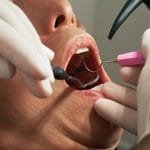Routine dental check-ups are fundamental to maintaining lifelong oral health. These regular visits to your dentist help prevent dental problems, ensure early detection of issues, and keep your smile looking its best. In this comprehensive guide, we will discuss the importance of routine dental check-ups, what you can expect during these visits, and the benefits they offer for your overall health.
Why Are Routine Dental Check-Ups Important?
- Early Detection of Dental Issues: Regular dental check-ups allow your dentist to detect problems such as cavities, gum disease, and oral cancer at an early stage when they are easier and less costly to treat.
- Preventive Care: Routine check-ups include professional cleanings that remove plaque and tartar, helping to prevent tooth decay and gum disease. Your dentist can also provide fluoride treatments and dental sealants to protect your teeth.
- Monitoring Oral Health: Regular visits help your dentist monitor your oral health over time
, identifying any changes or new risks that need to be addressed.
What to Expect During a Routine Dental Check-Up
A typical dental check-up includes several key components:
- Medical History Review: Your dentist will review your medical history, including any medications you take and any conditions that could affect your oral health.
- Oral Examination: A thorough examination of your teeth, gums, tongue, and mouth to check for signs of decay, gum disease, and other oral health issues.
- X-Rays: X-rays may be taken to provide a detailed view of your teeth and jawbone, helping to detect issues that are not visible during the oral examination.
- Professional Cleaning: A dental hygienist will clean your teeth, removing plaque and tartar buildup. This process includes scaling (removing tartar from above and below the gumline) and polishing (removing surface stains).
- Fluoride Treatment: Your dentist may recommend a fluoride treatment to strengthen your teeth and prevent cavities, especially if you are at higher risk for tooth decay.
- Discussion and Recommendations: After the examination and cleaning, your dentist will discuss any findings, provide recommendations for treatment or further care, and answer any questions you may have.
Benefits of Routine Dental Check-Ups
- Prevention and Early Detection: Regular check-ups help prevent dental problems and detect issues early, reducing the need for more extensive and costly treatments.
- Maintaining Oral Health: Professional cleanings and personalized advice help maintain optimal oral health, reducing the risk of cavities, gum disease, and other issues.
- Enhanced Appearance: Routine care helps keep your teeth clean and bright, contributing to a healthy, attractive smile.
- Improved Overall Health: Maintaining oral health positively impacts overall health, reducing the risk of systemic conditions linked to poor oral hygiene.
- Peace of Mind: Regular check-ups provide peace of mind, knowing that your oral health is being monitored and maintained by a professional.
How Often Should You Visit the Dentist?
For most people, visiting the dentist every six months is recommended. However, the frequency of visits can vary based on individual needs, risk factors, and oral health status. Your dentist will provide personalized recommendations based on your specific circumstances.
Conclusion
Routine dental check-ups are essential for maintaining lifelong oral health and overall well-being. By attending these regular visits, you can prevent dental problems, detect issues early, and keep your smile healthy and beautiful. Make dental check-ups a priority in your healthcare routine and enjoy the benefits of a lifetime of healthy smiles.



